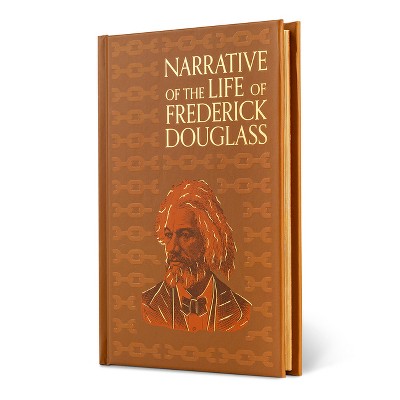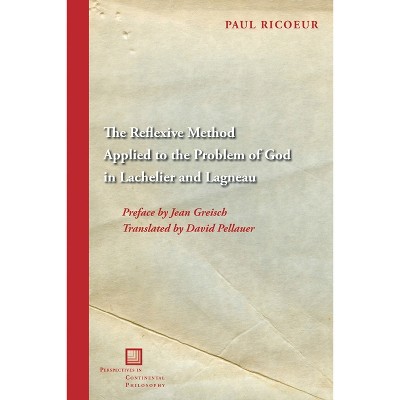Sponsored

At the Margins of Nihilism - by John E Drabinski
$30.00
Pre-order
Eligible for registries and wish lists
Sponsored
About this item
Highlights
- Documenting senses of life and practices of refusal hidden at the edges of Black literature and thought.
- About the Author: John E. Drabinski is Professor of African American and Africana Studies and English at the University of Maryland.
- 224 Pages
- Social Science, Black Studies (Global)
Description
About the Book
Documenting senses of life and practices of refusal hidden at the edges of Black literature and thought.Book Synopsis
Documenting senses of life and practices of refusal hidden at the edges of Black literature and thought.From the Back Cover
"A fascinating book that we need now more than ever. Brilliantly juxtaposing the literatures on deconstruction and social death, Drabinski poses clearly a central dilemma, though its solution is daunting: How can an ostensibly socially dead being (e.g. a Black person in a society founded on antiblack animus) ever become free and live free in a polity constructed to ensure that person's unfreedom?"--Neil Roberts, Williams College
"At the Margins of Nihilism offers a wide-ranging series of reflections on issues of enduring importance and interest--colonialism, racism (specifically antiblackness), and social death--through an engagement with major figures in continental philosophy and Black Studies. The book is the work of a mature thinker who moves between philosophical and literary traditions with ease and comfort."--Lisa Guenther, Queen's University The multi-century event of enslavement and colonialism changed the cultural and political imagination of the Atlantic world. We still live and work in the horizon of that event. It was an event that placed a violent Manichean structure of antiblackness at the foundation of our shared world. What kinds of life are possible in nihilistic, antiblack worlds of social death? Is it possible to imagine life outside the reach of those worlds? What decolonial methods help us understand that form of life in relation to expressive cultures of resistance and refusal? At the Margins of Nihilism develops a theoretical frame through a comparative reading of Jacques Derrida and Orlando Patterson. Reading between deconstruction and social death, Drabinski describes a notion of life as interstitial, situated outside the play of life and death in systems of antiblackness. This notion of life has broad epistemological, existential, and ontological implications. Drawing from a diverse set of sources including Zora Neale Hurston, Ralph Ellison, Gloria Anzaldúa, and others, At the Margins of Nihilism shows how the nihilisms of Richard Wright, Frantz Fanon, James Baldwin, and contemporary afropessimism operate as a closed system. Each system is opened by vernacular forms of life and practices of refusal. Those forms and practices speak to the power and significance of life that persists across centuries of antiblack culture, social life, and political hegemony. John E. Drabinski is Professor of African American and Africana Studies and English at the University of Maryland.Review Quotes
"At the Margins of Nihilism offers a wide-ranging series of reflections on issues of enduring importance and interest--colonialism, racism (specifically antiblackness), and social death--through an engagement with major figures in continental philosophy and Black Studies. The book is the work of a mature thinker who moves between philosophical and literary traditions with ease and comfort."---Lisa Guenther, Queen's University
"A fascinating book that we need now more than ever. Brilliantly juxtaposing the literatures on deconstruction and social death, Drabinski poses clearly a central dilemma, though its solution is daunting: How can an ostensibly socially dead being (e.g. a Black person in a society founded on antiblack animus) ever become free and live free in a polity constructed to ensure that person's unfreedom?"---Neil Roberts, Williams College
About the Author
John E. Drabinski is Professor of African American and Africana Studies and English at the University of Maryland. He is author of So Unimaginable a Price: Baldwin and the Black Atlantic (2025), Atlantic Theory: On the Vicissitudes of Relation (2025), Glissant and the Middle Passage: Philosophy, Beginning, Abyss (2019), Theorizing Glissant: Sites and Citations (2015), Levinas and the Postcolonial: Race, Nation, Other (2011), Godard Between Identity and Difference (2008), and Sensibility and Singularity: The Problem of Phenomenology in Levinas (2001).Dimensions (Overall): 9.0 Inches (H) x 6.0 Inches (W) x .46 Inches (D)
Weight: .6 Pounds
Suggested Age: 22 Years and Up
Number of Pages: 224
Genre: Social Science
Sub-Genre: Black Studies (Global)
Publisher: Fordham University Press
Format: Paperback
Author: John E Drabinski
Language: English
Street Date: January 20, 2026
TCIN: 1003026731
UPC: 9781531512378
Item Number (DPCI): 247-43-3352
Origin: Made in the USA or Imported
If the item details aren’t accurate or complete, we want to know about it.
Shipping details
Estimated ship dimensions: 0.46 inches length x 6 inches width x 9 inches height
Estimated ship weight: 0.6 pounds
We regret that this item cannot be shipped to PO Boxes.
This item cannot be shipped to the following locations: American Samoa (see also separate entry under AS), Guam (see also separate entry under GU), Northern Mariana Islands, Puerto Rico (see also separate entry under PR), United States Minor Outlying Islands, Virgin Islands, U.S., APO/FPO
Return details
This item can be returned to any Target store or Target.com.
This item must be returned within 90 days of the date it was purchased in store, shipped, delivered by a Shipt shopper, or made ready for pickup.
See the return policy for complete information.
Frequently bought together

$18.88
MSRP $27.00
Buy 2, get 1 free select books, music & movies
4.8 out of 5 stars with 572 ratings

$15.68
Buy 2, get 1 free select books, music & movies
4.7 out of 5 stars with 192 ratings
Trending Non-Fiction

$15.68
Buy 2, get 1 free select books, music & movies
4.7 out of 5 stars with 192 ratings

$19.31
was $20.98 New lower price
Buy 2, get 1 free select books, music & movies
4 out of 5 stars with 61 ratings

$19.58
MSRP $29.00
Buy 2, get 1 free select books, music & movies
4.7 out of 5 stars with 14 ratings

$4.59
MSRP $7.99
Buy 2, get 1 free select books, music & movies
4.8 out of 5 stars with 121 ratings

$6.20
MSRP $10.95
Buy 2, get 1 free select books, music & movies
4.8 out of 5 stars with 33 ratings

$7.09
MSRP $9.99
Buy 2, get 1 free select books, music & movies
4.9 out of 5 stars with 46 ratings









